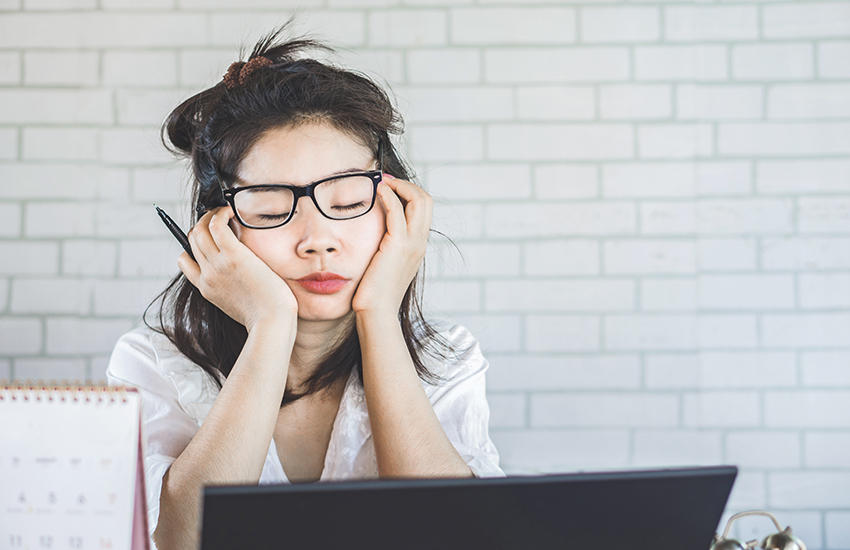Why our customers prefer Blue Cross
- Option of getting insured without a medical exam
- Excellent rates
- Pioneer in the field of health insurance with over 80 years of experience
- Friendly service from experienced agents who can answer your questions and assist you when needed
- Coverage that can be customized to meet your specific needs
- Discounts and savings with our one-of-a-kind Blue Advantage program

How to fight insomnia and get your sleep back on track
Published on: November 27, 2020
Defined as a period when a person cannot sleep, whether periodic or chronic, insomnia can have major effects on the quality of life of those who suffer from it. Here are some tips for a good night’s sleep so you can get the most out of your days!
Exercise
Regular physical exercise can decrease anxiety and help reduce interrupted sleep and even allows you to fall asleep faster. Try to avoid exercising in the three hours before going to bed so you won’t be over stimulated.
Switch up your routine
Going to bed relaxed will help you fall asleep quicker. If you’re having trouble falling asleep, start your routine with any one of these relaxation techniques, such as:
- A warm bath
- A meditation or yoga session or breathing exercises
- Some reading
- Listening to soothing music
Create a comfort zone
Your bedroom should be a peaceful place. Anything that might distract you or be overly stimulating is better in another room. Also, avoid using your bedroom or bed as a workspace if you can. It may be difficult, with many of us working from home, but if you solve problems in your bedroom, which could be too thought-provoking – it could prevent you from sleeping.
Most importantly, invest in a comfortable mattress and bedding set, a comfortable pillow can make all the difference.
Cool and quiet for a good night’s sleep
A well-ventilated room with temperatures around 18 to 20 degrees Celsius is ideal for a good night’s sleep.
Block out outside noise as much as possible and adjust the darkness level of your room to create a calm atmosphere.
Listen to your needs
Learn to respect your sleep pattern by going to bed only when you are tired, not when the clock seems to indicate the perfect bedtime. Signs of fatigue will let you know when the time is right. These signs can be:
- Chills
- Drowsiness
- Cloudy vision
- Decrease in vigilance
- Decrease in concentration
Blue light, sleep fight
A challenge for many, it is best to avoid using computers, cell phones or tablets before going to sleep. Screens send a contradictory message to our brain by stimulating it when it should unwind.
The blue light emitted mainly by the sun, but also by the screens of our electronic devices, has the effect of disrupting the cycle of wakefulness and sleep.
Avoid stimulants
Central nervous system stimulants like caffeine, theine, nicotine and sugar can interfere with sleep. Try to stay away from them at least six hours of going to bed.
Adopt healthy eating habits
If you have trouble sleeping at night, try to strike a balance between eating a meal that is too heavy, which will induce a long period of digestion and may disrupt your sleep, and a meal that is too light, which may cause you to wake up feeling hungry during the night.
Alcohol and sleep
The use of alcohol and drugs has a particular effect on sleep. Although these substances may make you fall asleep fast, they also may lead to a less restful night’s sleep by causing you to wake up at night as well as feeling tired in the morning.
Avoid naps
If you suffer from insomnia, you might be tempted to catch up on some sleep by taking naps during the day. A nap could disturb your sleep-wake rhythm. If the fatigue is too much, limit yourself to a nap of no more than 20 minutes as early in the day as possible so as not to interfere with your night’s sleep.
Gabielle Asselin